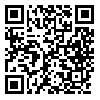Volume 28, Issue 9 (11-2020)
JSSU 2020, 28(9): 3030-3043 |
Back to browse issues page
Download citation:
BibTeX | RIS | EndNote | Medlars | ProCite | Reference Manager | RefWorks
Send citation to:



BibTeX | RIS | EndNote | Medlars | ProCite | Reference Manager | RefWorks
Send citation to:
Narimani M, Nemati S M. The Relationship between Psychological Distress and Self-Esteem with Anthropometric Characteristics in Obese Children. JSSU 2020; 28 (9) :3030-3043
URL: http://jssu.ssu.ac.ir/article-1-5136-en.html
URL: http://jssu.ssu.ac.ir/article-1-5136-en.html
Abstract: (1690 Views)
Introduction: Obesity is emerging as a worldwide problem. Among the factors contributing to obesity, psychological distress and self-esteem seem to be of particular importance because stressful situations lead to eating disorders, lack of exercise and difficulty in regulating emotion. The aim of the present study was to investigate the relationship between psychological distress and self-esteem with anthropometric characteristics in obese children.
Methods: The research method was correlational and the research sample included 150 students in the age range of 10 to 14 years in the academic year of 2017-18 in Ardabil City. They were selected by purposive sampling. Data were collected using DASS42 questionnaire, Eysenck self-esteem questionnaires and anthropometric survey questionnaire. The collected data were analyzed by SPSS software version 16 and Pearson correlation test and multiple regressions. The data collected were analyzed by Pearson correlation test and multiple regressions.
Results: The results showed that the relationship between anxiety and depression with body mass index (BMI), waist to hip ratio (WHR) and abdominal volume index (AVI) was significant and the relationship between stress and body mass index (BMI) and abdominal volume index (AVI) was significant (p <0.05). Moreover, the relationship between self-esteem and BMI, WHR and AVI anthropometric characteristics was significant and this relationship was negative and significant (p <0.05). The regression results also showed that BMI was a stress reliever (p <0.05).
Conclusion: It can be concluded that anthropometric characteristics have a positive relationship with anxiety and depression and a negative relationship with self-esteem.
Methods: The research method was correlational and the research sample included 150 students in the age range of 10 to 14 years in the academic year of 2017-18 in Ardabil City. They were selected by purposive sampling. Data were collected using DASS42 questionnaire, Eysenck self-esteem questionnaires and anthropometric survey questionnaire. The collected data were analyzed by SPSS software version 16 and Pearson correlation test and multiple regressions. The data collected were analyzed by Pearson correlation test and multiple regressions.
Results: The results showed that the relationship between anxiety and depression with body mass index (BMI), waist to hip ratio (WHR) and abdominal volume index (AVI) was significant and the relationship between stress and body mass index (BMI) and abdominal volume index (AVI) was significant (p <0.05). Moreover, the relationship between self-esteem and BMI, WHR and AVI anthropometric characteristics was significant and this relationship was negative and significant (p <0.05). The regression results also showed that BMI was a stress reliever (p <0.05).
Conclusion: It can be concluded that anthropometric characteristics have a positive relationship with anxiety and depression and a negative relationship with self-esteem.
Type of Study: Original article |
Subject:
Psychology
Received: 2020/05/3 | Accepted: 2020/11/30 | Published: 2020/11/30
Received: 2020/05/3 | Accepted: 2020/11/30 | Published: 2020/11/30
Send email to the article author
| Rights and permissions | |
 |
This work is licensed under a Creative Commons Attribution-NonCommercial 4.0 International License. |







